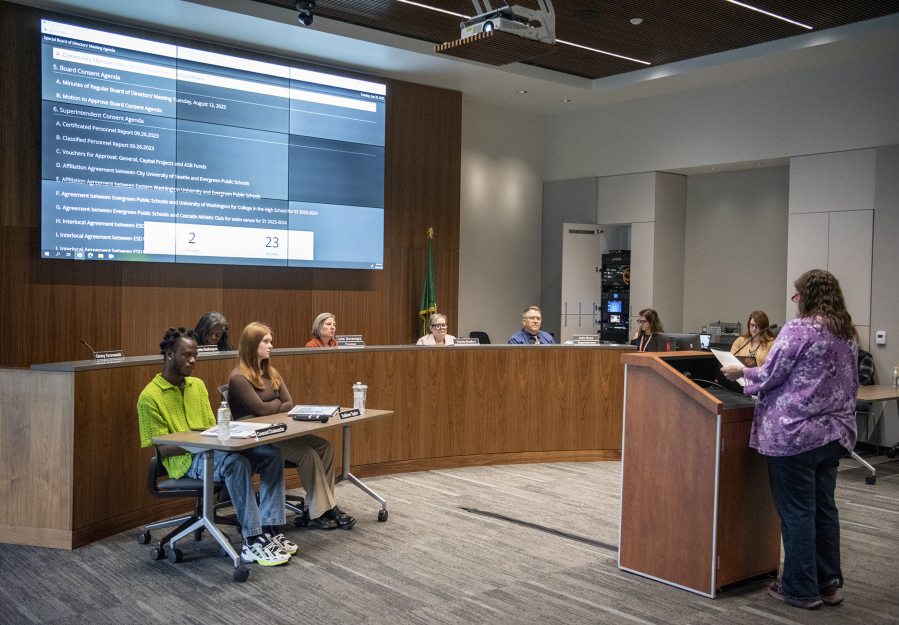Here’s the job description: You and your colleagues are in control of a budget in the millions or billions of dollars. It’s a part-time gig, but it could be full-time, depending on what’s happening. The high-pressure decisions you make affect the most vulnerable people in the community for years to come. And every four years, you’ll have to prove to everyone in your town that you deserve to stay in your job.
It will pay, at a maximum, $4,800 a year — if your employer can afford it.
Would you take it?
Hundreds of people across Washington already have. They’re called school board members. And according to a recent survey, at least 88% want to see more money in exchange for their jobs.
A new bill (SB 6223) proposes a significant pay increase for these elected officials, who decide how 43% of the state’s tax dollars should be spent. According to a recent study from the state’s Department of Commerce, school board members earn 61% less than more than a dozen other elected officials, including port and fire district commissioners.
“That’s probably the worst political position you can have in Washington state. You get paid nothing, and you get yelled at a lot,” said state Sen. Joe Nguyen, D-White Center, the primary sponsor of the bill.
The state law that deals with school board compensation was passed in 1987 and hasn’t been updated since. It caps the yearly earnings for school board members at $4,800 — adjusted for inflation, that would have been about $13,240 in the late 1980s. And because that money has to come out of local property tax revenues, some school districts have formal or informal rules where school board members aren’t paid at all.
Nguyen’s bill would change the cap language. The maximum compensation would be $6,000 a year plus 50 cents for every student enrolled in the district. Most significantly, the state would pay for those salaries, which would alleviate the burden for property-poor districts.
In Seattle, the state’s largest district, board members would earn around $31,000 a year under the bill — not a living wage for anyone in the city but much higher than the status quo.
“I think it’s a step in the right direction,” said Brandon Hersey, a member of the Seattle School Board.
The low pay cap excludes many who can’t afford to take on the extra workload and hold down a full-time job, according to the commerce department study. A widely distributed survey showed at least half of Washington’s counties don’t have a single person of color on their school boards.
“If we really want our school boards to match the growing diversity of our districts — this is the reality for people of color and especially women of color,” said Hersey. He said he spends 20 to 25 hours a week on School Board business on top of his regular job as a union political director.
Other locally elected officials make significantly more. King County and Seattle City council members both make north of $100,000 a year.
The national outlook on this issue makes Washington look somewhat progressive. In 13 states, including Idaho, New Jersey and Connecticut, the law specifically prohibits paying school board members, according to an analysis from Education Week.
California is famously the highest-paying state for school board members, where municipalities get to decide the salaries in larger school districts. In Los Angeles, for example, board members are paid anywhere between $50,000 and $150,000, depending on whether they have another job.
It would cost the state about $12.8 million per year to fund the bill. In a short session, it’s not likely to be a slam dunk, said Nguyen.



